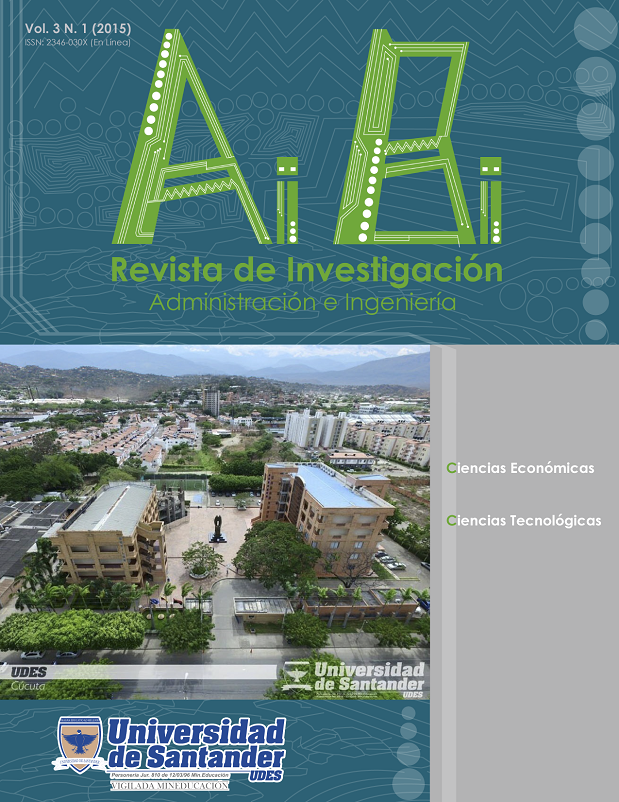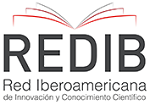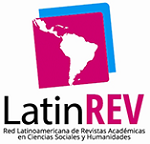The didactic knowledge of the content (cdc) of the professors of the chair of projects in the architecture career of the UNET.
Keywords:
pedagogical knowledge, university teaching, curriculum unit projects, teaching strategies, architectureAbstract
The purpose of this research is not to discredit the work traditionally has been developed by architects educational projects; on
the contrary, it is intended to disclose what the pedagogical content knowledge (CDC) of the professional National Experimental University of
Táchira (UNET), located in the city of San Cristobal, Venezuela. The CDC technical professionals is of great importance in academic
practice, in this case the architect teacher has the responsibility to pass through the-creative teaching tools for integrating basic training
elements that create a product guidelines, approaching the reality. These objectives were to: identify the theoretical foundations about the
didactic knowledge, determine the teaching strategies used by architects teachers UNET in the course of projects, describe the knowledge of
the current educational content teacher projects, and synthesize from the point of view of the process of teaching and learning possible
solutions to be implemented by teachers in the department of architecture projects. Within the paradigm qualitative methodology with
ethnomethodological approach, which allowed us to evaluate how this behavior specialist teacher within the classroom stands; considering
stage the Design Workshop and selecting a purposive sample of 07 teachers and 34 students from the last 2 semesters of Projects VII and VIII
of the School of Architecture. Data collection techniques were used, as the survey and observation, accompanied by the questionnaire with
open and closed questions framed in education, academia and educational categories; elements premeditated by the researchers allowed
valuable information to define the professional CDC study. The data analysis was through SPSS in order to categorize and identify
commonalities of the information obtained. The findings revealed a deficiency in terms of the CDC and the implementation of teaching
strategies in the development of the course project.
References
Landeau, R. (2007). Elaboración de trabajos de investigación. Caracas: ALFA.
Díaz, D. (1999). La didáctica universitaria: Referencia imprescindible para una enseñanza de calidad. Revista electrónica interuniversitaria de formación del profesorado. Disponible en: http://www.aufop.com/aufop/uploaded_files/articulos/1224326868.pdf "[Consulta: 2010, mayo 20]"
Universidad Nacional del Táchira (2005). "Reforma curricular de la Carrera de arquitectura" concejo académico 017/2005.
Di Stasio, E. y Pérez, C. (2001). Aproximación didáctica de la construcción del conocimiento del diseño arquitectónico. Ponencia facultad de humanidades y Educación Universidad del Zulia. Disponible en: http://www.revistas.luz.edu.ve/index.php/omnia/article/viewFile/5371/5214. "[Consulta: 2010, mayo 20]"
Alba, A. (2004). La formación docente: evaluación y nuevas prácticas en el debate educativo contemporáneo. Santa Fe: Universidad Nacional del Litoral.
Shulman, LS (1987). Conocimiento y enseñanza: fundamentos de la nueva reforma. Harvard Educacional Review.
Oser, F. & K. Baeriswyl, FJ (2001). Coreografías de la Enseñanza: Instrucciones para el aprendizaje. En Richardson, V. Manual de Investigaciones sobre el Enseñanza. AERA. Pág.. 1031-1065.
Perinat, A. (2004). Conocimiento y educación superior: Nuevos horizontes para la universidad del siglo XXI. Editorial Paidós, 2004.
García, A. (2000) Didáctica e Innovación Curricular. Universidad de Sevilla. Edición 2 ilustrada. Editor, Universidad de Sevilla.
Grossman, P.L. (1990): La realización de un maestro. Profesor el conocimiento y el profesor la educación. Nueva York, Teachers College Press (Columbia University Press).
Shulman, L. S. (1986). Los que entienden: el crecimiento del conocimiento en la enseñanza. Investigador para la Educación, 15 (2), 4-14. Trad. y Edición española Centro de Estudios Públicos, Chile.
García, A. (2000) Didáctica e Innovación Curricular. Universidad de Sevilla. Edición 2 ilustrada. Editor, Universidad de Sevilla.
Pineda, J & Pérez, J (2002). Estrategias de aprendizaje: Concepto, evaluación e intervención. Editorial Pirámide.
Monereo, C. (2002). Entramados, métodos de enseñanza cooperativa y colaborativa. Editorial Edebé.
Molins, M. (1997). Currículum y Educación: Campo semántico de la didáctica. Editorial Ediciones Universitaria.
Bartha, F. (1997). Innovación y calidad de la docencia universitaria: hacia un desarrollo docente universitario en la PUCP. Educación. VI (11) Mar. 31 – 44.
Rojas, B. (2010). "Investigación Cualitativa". Editorial FEDEUPEL
La construcción social de la realidad carcelaria: los alcances de la organización informal en cinco cárceles latinoamericanas (Perú, Chile, Argentina, Brasil y Bolivia) Autor José Luis Pérez Guadalupe Editor Fondo Editorial PUCP, 2000 ISBN 9972423433, 9789972423437 N.º de páginas 436 páginas
Yuni, J, Urbano. C, Ciucci. M (2006). Mapas y herramientas para conocer la escuela: Investigación etnográfica e Investigación - acción. Editorial Brujas. III Edición.
Hernández, R. Fernández, C. y Baptista L. (2010). Metodología de la Investigación. México: McGraw Hill.
Miles, M. y Huberman, M. (1984). Análisis de datos cualitativos. Un libro de consulta de nuevos métodos. London: Sage Publications.
Downloads
Published
How to Cite
Issue
Section
Downloads
License
The journal offers open access under a Creative Commons Attibution License

This work is under license Creative Commons Attribution (CC BY 4.0).








